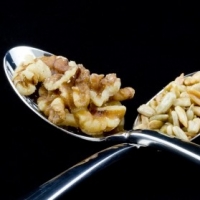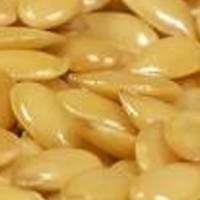High Blood Pressure and Protein Needs
Hypertension, as high blood pressure is medically called, is important because it is a major risk factor for three serious conditions: stroke, heart attack and kidney disease. In the past, the first thing that a person with frequent high blood pressure was told was to do was to cut out salt, lose weight, stop smoking and learn some stress reduction exercises. The new thinking only changes the way that the salt is handled, while the other suggestions are still valid and greatly encouraged.
There are over 73 million Americans with hypertension (Source: Lewis, 2009) and several steps that most doctors agree that they should be taking to manage their health are:
– Monitoring their blood pressure daily
– Monitoring their weight
– Monitoring their intake of all nutrients
Having a high blood pressure reading once or twice does not automatically relegate you to the hypertension club, nor does it automatically mean that you will need to take medications for the rest of your life. Blood pressure readings can be influenced in the doctor’s office by illness, anxiety about the visit and just plain nervousness at being there, a phenomenon that doctor’s call “white coat hypertension.” However, repeated high blood pressure readings, especially when they are done with your home monitor and are consistent with what is being noted at the doctor’s office, is a sign of trouble and will probably get you a prescription medication, a list of lifestyle and dietary changes and higher rates on your health insurance.
Blood pressure readings are normal when the reading is 120 over 80 or lower for those 18 and older. Prehypertension is readings of:
– 120-139 over 80-89,
– high blood pressure (stage one): 140-159 over 90-99
– high blood pressure (stage two): 160 and higher over 100 and higher
(Source: American Heart Association)
The Risk of Continued High Blood Pressure
High blood pressure is a major risk factor for a number of diseases including heart disease and stroke, kidney disease (it is the number one risk factor for a condition called Chronic Kidney Disease or CKD), and others.
The more risk factors that you have for other conditions, including obesity, smoking and family history, the more vigilant you should be about monitoring your blood pressure and taking the steps to get it under control once and for all.
Not all doctors will immediately prescribe medications, especially if you fall in the category of pre-hypertension. However, if you do not stop smoking, lose weight, reduce stress and learn the importance of good nutrition, including the right vitamins and minerals that your body needs every day, you will not only develop full hypertension, you will join the ranks of the millions who have to take daily meds to combat and control the condition.
There are two types of hypertension: primary or essential hypertension, which is a standalone condition and secondary hypertension which is caused by another disease or condition, such as kidney disease. Just under 30% of all American women, ages 18-74 have some degree of high blood pressure, and this number increases with age. It is more prevalent in African American women, and 80% of African American women over 65 have high blood pressure. (Source: Ammer, 2005)
Chronic Kidney Disease (CKD) is a serious condition of the kidneys that can be caused by high blood pressure. Ironically, CKD itself can cause high blood pressure. In fact, the two are so interrelated in some cases that doctors would not be able to say which one happened first. Kidney disease can be a life threatening condition – the role of the kidneys in the body is vital. Kidneys filter waste products from the blood and play a role in maintaining proper blood volume. While we can live with one of these bean shaped organs, it puts a huge strain on it and may lessen its ability to accomplish its daily work. Once a kidney is damaged, the chance of moving further through the kidney disease process and developing renal failure becomes even higher.
Heart disease kills over 16 million adults worldwide and accounts for around 30% of all deaths. In the United States, 40% of all deaths are attributed to some form of heart disease (Source: Natural News, 2006). The incidence of strokes in the United States is around 600,000 per year with the risk doubling for most people every decade after age 45 (Source: Carlson, 2008).
The Importance of Weight Management
Obesity is one of the major risk factors for developing secondary hypertension. There are 34 million Americans who are considered to be overweight or obese (Source: www.medStanford.edu). For many of these people it is a combination of genetics, poor diet and lack of exercise that has brought them to their current condition. Many of them have slowed or stalled metabolisms after years of fad dieting that have left them disillusioned and ready to give up. Many more of these people will seek gastric bypass surgery not only to lose weight, but also to help lower their risk for a number of conditions including hypertension. Some of these people will even qualify for the surgery at lowered BMI numbers because of the secondary condition of hypertension and others.
Before it becomes necessary to have a dangerous surgery, an attempt at real weight management should be made. A dietician or nutritionist can explain the real needs for each body, including how many calories they should eat and how to divide their nutrients.
Some people with prehypertension can lose as little as 10-20 pounds and greatly reduce the need for medications. There are some benefits to using protein supplements, most notably whey protein and soy proteins; however, there are some risks especially to those with kidney disease. People with CKD should try to limit their protein (within reason) but only at the advice of their doctor or a licensed dietician. (Source: The National Kidney and Urologic Diseases Information Clearinghouse).
DASH
Most people with hypertension are automatically referred to the DASH diet. DASH stands for “Dietary Approaches to Stop Hypertension. The DASH diet is high in fruits and vegetables and low-fat dairy foods, and low in total and saturated fats. Most dieticians suggest limiting animal protein intake and that the choices be that of turkey, chicken and fatty fishes. Instead of animal proteins, (except for the dairy foods) DASH suggests using soy and other plant based proteins instead. Soy is the one plant protein that is complete, meaning it supplies all eight of the essential amino acids that the body cannot make on its own (Source: Bednash, Ph.D, RN, FAAN, editor, 2001).
Benefits of Proteins on High Blood Pressure
Research has shown that soy protein can lower blood cholesterol levels and may lower your blood pressure and your chance of heart attack. (Source: Natural News) In addition to soy protein, the option of including whey protein, a derivative of milk, to the diet also has a number of benefits.
Whey protein has been used medically as early as 420 BC when Hippocrates would recommend it to his own patients. It may be used by the body to maintain normal blood pressure, however it does a lot more than just that. A whey derived peptide (NOP-47) has been shown to improve vascular function and may do so by angiotensin converting enzyme (ACE) inhibiting activity. ACE inhibitors work by stopping the conversion of angiotensin I into angiotensin II. The latter is a vasoconstrictor, so stopping the conversion equals better blood flow and better blood pressure readings (Source: Mercola 2009).
The American Heart Association recommends that anyone with high blood pressure or at risk for it should steer clear of high protein diets. Protein should be no higher than 35% of the daily calories.
Profect, a liquid protein supplement shot, is perfect as a snack between meals and can be used in conjunction with the DASH diet. It is small (less than three fluid ounces) and gives 25 grams of protein per serving, giving a healthy boost in a much smaller size and without being extreme in calories (100 cal. each serving) or in protein. Profect is available from Protica.
Protica Research (Protica, Inc.) specializes in the development of Capsulized Foods. Protica manufactures Profect, IsoMetric, Pediagro, Fruitasia and over 100 other brands, including Medicare-approved, whey liquid protein for immunodeficiency patients. You can learn more at Protica Research – Copyright
-
Ayurvedic Medicine for Weight Loss
A slim and smart body is a matter of great pride and attraction for a
-
Nine Compelling Facts that Make India a Medical Tourism Destination
Medical tourism connotes visiting a country to undergo medical treatm
-
The Most Successful Weight Loss Techniques and Discussion
Rather than change current lifestyle followed by balanced nutrition, r
-
How does a Calotren supplement help in the making of a healthy body?
-
Are Weight Loss Pills for Me?
If you are struggling with weight related issues and have tried numer
-
Is Slimming Stopping You From Losing Weight?
Have you tried every possible diet plan, even the fads when youve been
- DON'T MISS
- Simple Healthy Eating Habits For Weight Loss
- Are You a Binge Eater?
- How Long Have You Been Dieting Without Results?
- Vince Delmonte No Nonsense Muscle Building Pdf
- Small Coups for Satiety at Dinner Accelerate Your Weight Loss
- Low carb recipes- How to organize your day
- The 7 Easiest Ways To Lose Weight
- How To Lose Weight Very Quick With These Proven Weight Loss Tips To Get You In The Fat Burning Zone!
- 5 Quick Ways to Cease Craving Junk Meals
- The Best Possible Weight Loss Program




